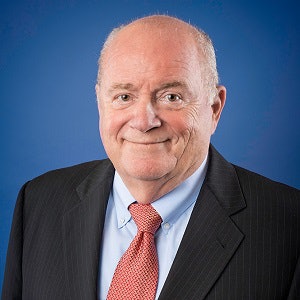A new study from the Georgetown University Center on Education and the Workforce (CEW) found that a student’s academic discipline within certificate and associate degree programs influences future income earnings.
The report, “The Overlooked Value of Certificates and Associate’s Degrees: What Students Need to Know Before They Go to College” compared the market value of an associate degree and certificate program to a bachelor’s degree.
“Postsecondary education is not a luxury anymore; it is a necessity,” said Dr. Tanya I. Garcia, co-author of the report and senior fellow at CEW. “In order for the nation to achieve its economic and social imperatives, we need to deliver the message that education beyond high school is one of the only routes remaining to enter the middle class. Unless people start thinking about students differently, we aren’t going to get there.”
Around two million students a year earn a bachelor’s degree, compared to one million certificate and associate degree earners. Additionally, 94% of certificates and 57% of associate degrees are awarded in career-oriented fields, according to the report.
Among certain fields of study, there were surprising income differences based on degree and certification.
For example, those with an associate degree in engineering had median earnings between $50,001 and $60,000 a year. By comparison, the median earnings of those with a bachelor’s degree in education was lower, at $30,001 and $40,000 a year, the report said.
Also, bachelor’s degree recipients in the liberal arts field earn on average of between $40,000 and $50,000 a year, while construction trade workers with just certificates earn almost the same amount, according to the report.
Students “don’t just need education, they need work experience,” said Dr. Anthony P. Carnevale, lead author of the report and CEW director. “They need money to allow them to afford education and work experience. They need to be able to support themselves, go to school and at the same time, get quality work experience that will make them more attractive as employees once they graduate.”
The research found racial gaps in the numbers of earners with associate degrees and bachelor’s degrees.
 Dr. Anthony P. Carnevale
Dr. Anthony P. CarnevaleBlack students comprise 56% of certificate and associate degree earners while Latino students make up 62%. Of those with bachelor’s degrees, Black students make up 44% and Latino students make up 38%. By comparison, 53% of White earners have bachelor’s degrees and only 47% have a certificate or associate degree, the report said.
Garcia said the inequity might be due to informational gaps and navigational challenges that underrepresented students face while in school.
“Some students are labeled as college material and some are not,” she said. “We fundamentally need to change the way we think about students and prepare them for jobs in which they can support themselves and their families.”
According to the research, in states where Black and Latinos make up a large percentage of the population, they hold high rates of certificate attainment. In these states, White individuals represent most of the bachelor’s degree attainment.
For instance, Black individuals comprise 37% of the population in Mississippi and earn 50% of the certificates awarded. And Latinos comprise 36% of the population in California and earn 44% of certificates, the report found.
“Even though we all know that underrepresented racial and ethnic minority groups are going to college in higher numbers, no one can rest easy knowing that they’re getting the lowest level of postsecondary attainment available,” said Garcia.
The report also highlighted recommendations for changes needed in higher education. For example, there should be more transparency surrounding post-college employment and earnings and higher accountability for career-oriented programs. In addition, said Carnevale, there needs to be “sufficient counseling” for students within the education sector.
“Beginning with the student, discovering what their individual interests are, what their work values are, what their talents are,” he added. “And then help them figure out what kinds of fields of study would be best for them.”
Sarah Wood can be reached at [email protected].





















